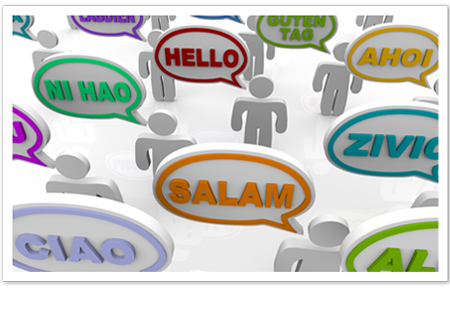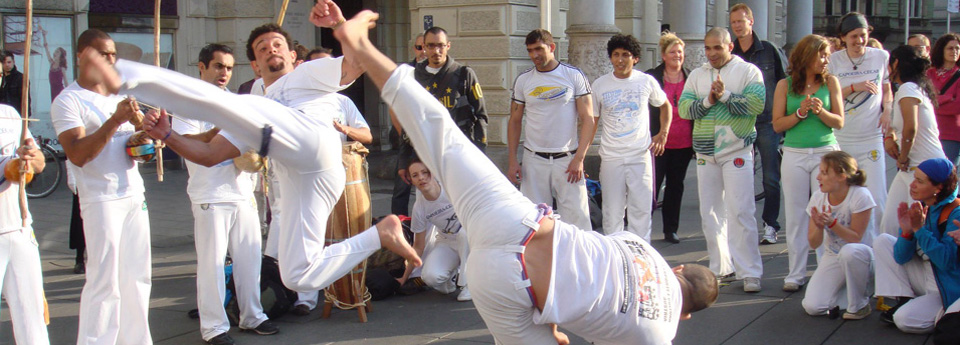Why Choose Decode?
 Someone may speak many languages well enough to communicate with native speakers, but the skills demanded of translators are much greater! Translators must bridge linguistic and cultural gaps between two groups that cannot speak the same language. This means translating concepts, instead of providing literal word-for-word versions, an approach that can be devastating to a business relationship!
Someone may speak many languages well enough to communicate with native speakers, but the skills demanded of translators are much greater! Translators must bridge linguistic and cultural gaps between two groups that cannot speak the same language. This means translating concepts, instead of providing literal word-for-word versions, an approach that can be devastating to a business relationship!
A client approached us with a problem. Several important customers in Brazil couldn’t understand why their local employees weren’t utilizing the Company website! One look at the “Portuguese” version of the website explained their problem – the Brazilian employees were unable to understand the features of the website – the functions had been translated “literally” making it, basically, useless! This represented a significant loss of revenue to the company and they would have never known why! It takes a qualified translator to bridge that gap!
To translate professionally and effectively, it is not enough to be a talented or qualified linguist – it is not enough to have learned the language in a classroom. While titles, certifications and degrees are important and impressive – they cannot replace a thorough knowledge and familiarity with the people, culture, customs and business practices of both countries. They cannot replace the experience gained from having lived, worked, immersed into the life of that country! Things change, circumstances change, political scenarios change, and cultural jargon/slang change too! If the “translator” is not keeping up with the changes of the target country – it makes it very difficult for them to provide native sounding translations.
Having spent half of my life in Brazil and the other half in the U.S. and having lived, studied and worked in both countries I can provide this value added. I’ve been exposed to a multitude of industries and government agencies in both countries that have allowed me to become a well rounded professional able to perform well in most situations/subject matters.
There are many excellent professionals that can perform outstanding services in ONE language pair (either English to Portuguese OR Portuguese to English). As you navigate the internet in your search for a translator – you will find many such qualified professionals – but very few can say that they are equally as qualified, native and fluent in both sets of languages. You, as a client, must be certain that nothing will be missed in translation. Your tone, cultural nuances, colloquialisms, slang, current political jargon, etc will be translated by someone who not only understands the language – but is also aware and understands the specific moment of that country.
You may ask, “Why not use a computer translator”? Computers can try to translate, but they just don’t get it! The U.S. Government has recently acknowledged that despite the large investments made in technology, computers cannot replace translators.
“Great strides have been made in developing and employing technology to facilitate collection and processing of human communications in foreign language. However, the vision of technology replacing the human language translator, interpreter, or analyst is still an unfulfilled promise. The dynamics of natural human language pose significant and insurmountable barriers to attaining that goal. The number of new words coined each day, the new meanings given to old familiar words used in different contexts, and the incorrect use of those same words provide formidable obstacles to
high quality/high accuracy machine translation or interpretation.”
Computers cannot read between the lines and interpret the shades of meaning. A single word may mean different things according to the context. Computers can’t grasp, for example, if the word “love” is referring to a score of zero in a tennis match or a romantic state of mind!
Imagine words such as “mouse”, “cookies” when speaking of computers and technology, or “pizza” and “oranges” when speaking of Brazilian politics!
Envision an English to Portuguese translation, the subject is “emergency procedures”, that directs employees to dial “911” in the event of an emergency! The translator should know – and point out to their client – that “911” does not work in Brazil! Or that the employees should call Company Headquarters, or a Company Hotline by dialing 1-800…those employees in Brazil would never be able to reach that service and the translator should point out to the client that an overseas access number should be provided!
A good translator must always have the target audience in mind, the end user. The ideal translation will sound as natural and native in its translated version as it does in its original format. Language registers must be observed. Language used for a target audience comprised of doctors or lawyers will not use the same wording as that used for a layperson.
As you can see, selecting a Translator is easy. . . selecting a Quality Translator – is not!










